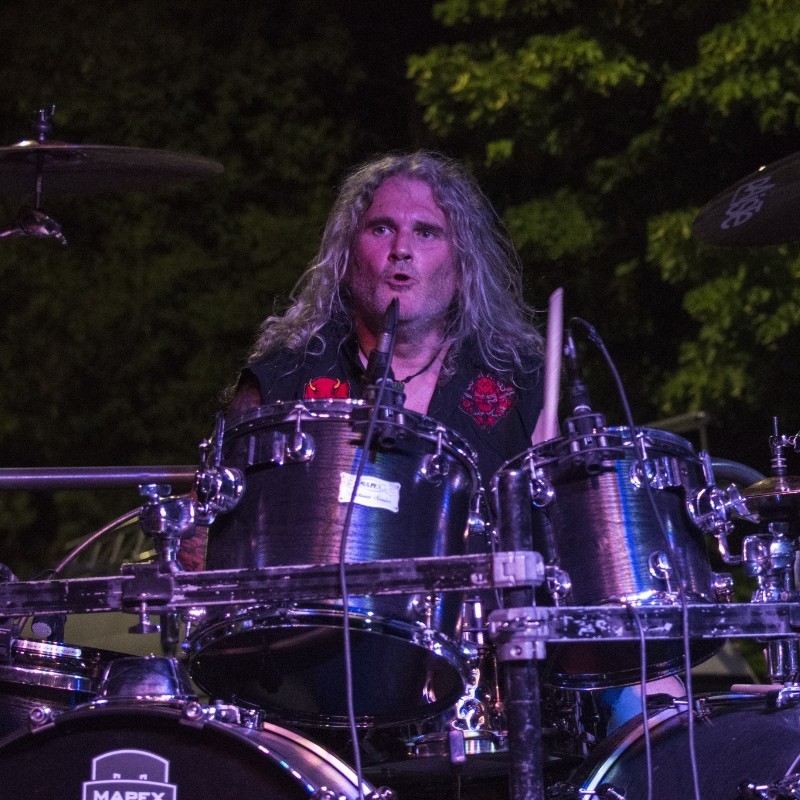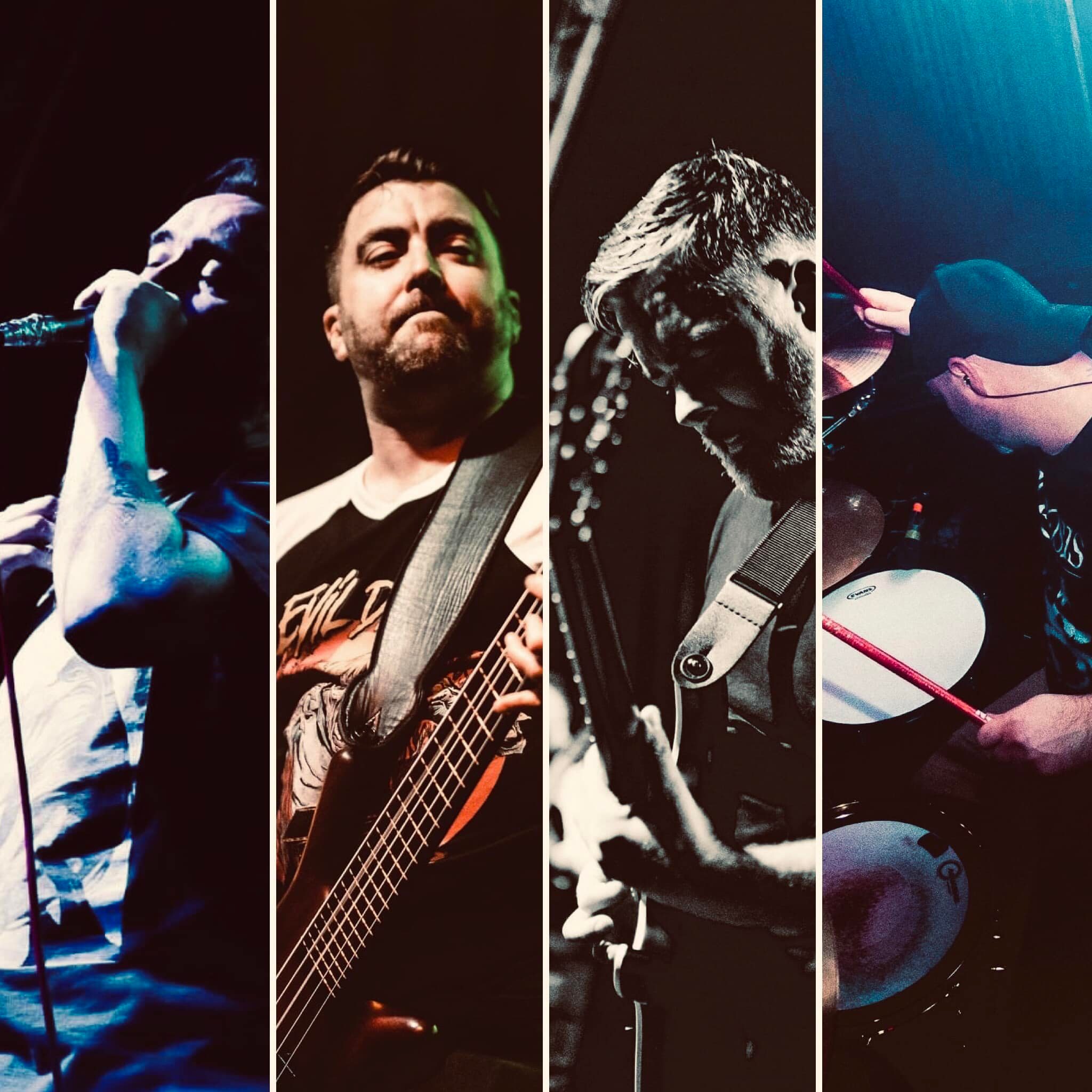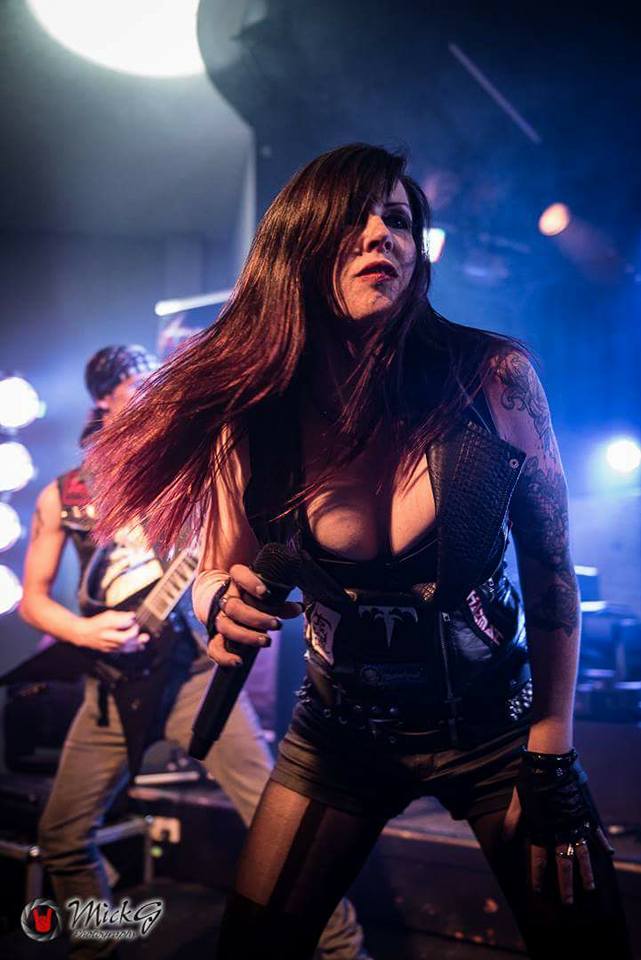Interview with Larry Paterson, drummer for Alcatrazz.
– Greetings Larry. Welcome to Metal Health and thanks for being here.
It’s my pleasure, on behalf of the other guys in the band 😊 I hasten to add that I can only speak from my point of view here, so the other guys may not think quite the same.
– No worries. Firstly, thank you for all the great music over the years. It is a soundtrack to many people’s lives, past and present. Congratulations on your new single ‘Battlelines’ from the album ‘Take no prisoners’. Some powerful, thumping, melodic style metal. I love this quote from your you tube channel notes for ‘Battlefield’ – ‘there can be no question that Alcatrazz’s collective boot is repeatedly kicking serious ass!!!’ Indeed!
– What does good mental health mean to you?
Wow, that’s a tough and expansive question. It means many things I guess, summed up by the ability to wake up every morning and look forward to what’s coming that day. It means maintaining enthusiasm for your life and the world you inhabit – not just the professional world that you’re part of, but everything that’s around you.
– How is life for you off the road or when you’re not gigging? Especially after a tour or a big gig. Is it difficult to adjust back into life at home after time on the road? Or after an inspiring recording session? If so, how do you adjust/cope? Of course, covid turned the world upside down. How did you handle the worldwide pandemic shutdowns?
Life off the road often feels, for me anyway, like something is missing. Music has always been an integral part of my life and being in a working band has been the centre of my world for more years than I can remember. Long tours can be difficult at times because you live in something of a bizarre little bubble. EVERYTHING revolves around the gig, and the entire day is headed toward that singular purpose. It’s a weird existence in which there is a comfortable routine – travelling, soundchecks, eating schedules etc – and yet everything is also completely different because you never know what may happen or how you may wake up feeling that day. Getting home after a long tour can be really odd. One minute you’re in close proximity to all these people that mean so much to you, playing music that keeps your blood pumping, next minute you’re on the train heading back from the airport on your own and the laminate pass no longer works. Ha ha! You go from rock and roll breakfasts, stage times and dressing rooms to cleaning cat litter off the floor again. It can sometimes take a few days to get your head back into the game at home. What makes an absolute world of difference is if you have relationships with people – friends or partners – who get it. People who understand the drive that you have to stay in a band when it can seem like the most insane lifestyle decisions anybody can ever make. There’s no money, there’s frequent criticism that can often amount to personal attacks, there’s constant self-doubt that can get quite debilitating, but then there is the moment of truth on stage where the entire world makes sense for a change. Blackie Lawless once summed it up when he said that if you don’t NEED it, if you can live without being in a band playing music, then give it up immediately. It has to be WHO you are. Not what you do, but who you really are.
The pandemic hit everybody, many way worse than it impacted me. I lost friends to it and saw families really suffering from its effect. But it also hurt musicians the world over, especially when you had rich idiot politicians shrugging you off and telling ‘entertainers’ to just retrain as carers or whatever. What a bunch of pricks! Sadly, the fallout is continuing for bands, particularly economically. Costs have skyrocketed as everybody tries to claw back what they lost. It’s harder than ever in that sense.
-What motivates you? What keeps you going?
The very fact that music and playing drums is my identity. It’s not just a hobby, it’s not just a job. It’s a core identity that I feel completely lost without. When you are in a good band, and particularly when you are writing music together, you get those moments when the planets align, and the hairs stand up on your arm and you know that you’ve tapped into something special. I remember writing sessions for a few albums that I’m on which had those moments. You never lose that feeling. And there’s nothing like it!
– Have you experienced any tough times personally that you’d be okay talking about? If so, how are you/did you get through this?
I think everybody does. In music it hits you either when you have no band or when you are in a band, but with people that don’t need it like you do. People happy to sit on their arse and let ‘the greatness’ come to them. I’ve had moments where you properly melt down because you’ve left a band that no longer was working like it was and you’re suddenly adrift. There was a period not that long ago when lots of personal stuff was coming undone and I left one situation and suddenly struggled to find anything else that worked. I drifted in and out of bands, some of which were terrible, purely because I needed to be playing and writing. But finding the right people to work with is incredibly difficult, as the right band is not only a musical fit, but a personal one too. If you end up having personal issues with another band member, then you have big problems.
How did I get through it? With a lot of help. It was, frankly, very depressing. I ended up on happy pills for a while, which totally suck. Fortunately for me I have the best partner and she helped a lot, and some of the best friends a person could ever wish for. They all helped. I was doing my best to face up to the idea that I was never going to be part of another decent band, and without that there just seemed to be a gaping void in my life that nothing could fill. It’s ironic really, because I’m also an author and a diving instructor. But the reality is that while I’m diving – and I do love teaching scuba – I’m always thinking of heavy metal and always feel like I’m a headbanger doing a job. When I’m drumming, I don’t care if I even see a puddle of water, let alone be diving. Music just rolls over everything – which is a curse for many people around you, as it can become an incredible single-minded and selfish pursuit in many ways. The same with writing books. I love it and take great care to tell people’s wartime experiences as accurately as I can, but I can stop writing. What I can’t stop doing is wanting to play music.
When it became a possibility that ‘the dream’ was over, you do get some pretty dark thoughts and it’s hard to drag yourself out of the slump you find yourself in. But, like I say, I am lucky to have amazing – and VERY patient – people around me.
Fortunately, and with a lot of help, I found my way through that particularly tangled path.
-What does making music mean to you? Why do you do it?
Everything. It means everything. Why do I do it? Because it’s who I am. It’s my identity. And not just music, but heavy music: heavy metal. It’s part of my DNA. There have been times when I wish it wasn’t! Ha ha!
-When did you start making music? Was it like finding some buried treasure that you didn’t know you had, and how does making music fit in with the rest of your life?
Oh yeah it really was like finding treasure! My mate Beam and I l started in bands at about 14 years old or so and we left our homes in sleepy old Blenheim, New Zealand, at 17 to become metal musicians in Christchurch. We played a bit, but it never came to anything. However, that set the seal on our lives from that point on. Moved to the UK…had a zillion ups and downs…but it all just cemented music as what I really need. Sadly, it doesn’t fit the rest of my life. The rest of my life has to fit it! Ha ha! Like I said, it can be an incredibly selfish and single-minded pursuit.
-How important is it for the bass guitar and drums to be tight, or loose, and where do you see Guitar, Keys, and Voice fitting in the groove? How are you enjoying being part of the engine room, laying down the groove?
It’s everything having tight bass and drums. That’s the foundation of a band’s sound and it needs to be solid. Without that, you’re building a house on quicksand. I love being the engine room. It’s fair to say that Alcatrazz is a different band to every one I have been in previously, but the role remains the same. Lay down the foundations and let the others build it up from there. Funnily enough I’ve always worked closest with whoever plays the tightest rhythm guitar. I never have bass in monitors as you can ‘feel’ it when it’s right. But I have lots of rhythm guitar, which in our case is Jimmy’s keys, and Joe of course. Plus I have vocals – usually out of curiosity to see where they are going. Ha ha! That’s a not a dig at Doogie…it’s a dig at ALL vocalists I’ve worked with! 😉
-What was the recording process for ‘Battlelines’ and the new album? Did you record it live, or record an instrument at a time etc? I love Joe’s subtle, cool use of wah wah on the solo for Battlefield. It’s a ripper! The drums and bass are solid and driving, keys tasteful, strong and supportive, and Doogie rips your head off beautifully with his vocal attack.
It was recorded in pieces individually. Not a preferred way of doing it, but circumstances kind of forced it. However, I honestly believe that it doesn’t sound like it was recorded that way. Basically, everybody has their shit together and it fits into place as intended.
-What are your plans? I know you have a new album ‘Take no prisoners’. Some more touring this year, or any dates you can mention? Did you showcase some new songs on the recent tour with Girlschool? It must’ve been a blast.
It’s always a blast touring with Girlschool. They’re cool. So far we’ve only done one new track. We will be doing lots more, and we hopefully have some South and North American dates this year, as well as a single French festival. It’s a little sparse at the moment which is a royal pain in the arse! We NEED to get on the road and back on stage!!
-Ok, last question. What would you say to fans who are struggling with their mental health, or finding life difficult at the moment?
Most importantly…talk to somebody. People help, they really do. If you don’t feel you can talk to family or friends, then an anonymous and non-judgmental voice from a doctor or some kind of counselling or help centre can genuinely help. It’s not weak. It’s real.
The world has a lot of bastards in it that will try to knock you down at every opportunity. But it also has the opposite. There are a lot of people who will do their best to lift you up when you fall. Don’t throw your problems on social media! That can be a toxic, poisonous place to be. Talk to somebody. Face to face…or at least one to one. Tomorrow is always worth seeing.
-Thanks Larry for taking the time to talk with us.
Band music links: https://www.alcatrazzofficial.com/
You tube: https://www.youtube.com/channel/UCnLCCQe68LpSPWIwm-Dx14w
Larry on Instagram: https://www.instagram.com/seakrieg/
Greg \MH/



